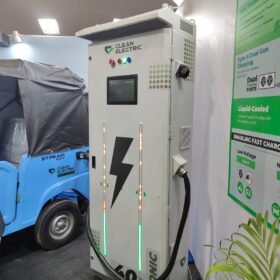CEEW Study: Electric Two-Wheelers and Three-Wheelers Outperform Petrol Models in TCO
Key Ideas
- Electric two-wheelers and three-wheelers have a lower total cost of ownership (TCO) compared to petrol models, with significant savings particularly in states with supportive EV policies.
- Commercial taxis benefit from major savings with EVs due to lower daily operating costs, while private car competitiveness varies by state based on EV subsidies and pricing.
- Green hydrogen buses are projected to become competitive in the late 2040s, with fuel cell electric vehicles (H₂-FCEV) buses offering a lower TCO than internal combustion engine (H₂-ICE) buses due to higher fuel efficiency.
- The report recommends battery financing schemes to reduce the CAPEX burden on EV buyers, proposing a monthly rental/EMI model for batteries to make EVs more affordable and accessible.
A recent study by the Council on Energy, Environment and Water (CEEW) in India compared the total cost of ownership (TCO) of electric vehicles (EVs) and petrol vehicles across different segments. The study found that electric two-wheelers and three-wheelers have a lower TCO than their petrol counterparts, with electric two-wheelers costing INR 1.48/km compared to INR 2.46/km for petrol models, and three-wheeler EVs costing INR 1.28/km versus INR 3.21/km for petrol. The analysis highlighted that EVs offer significant savings, especially in states with supportive EV policies. While commercial taxis benefit from lower operating costs with EVs, the competitiveness of private cars varies based on state-specific factors like subsidies and pricing.
The study also discussed the outlook for electric buses, noting that e-buses need cost reductions to compete with diesel buses. It mentioned that green hydrogen buses are expected to become competitive in the late 2040s, with fuel cell electric vehicle (H₂-FCEV) buses offering a lower TCO than hydrogen internal combustion engine (H₂-ICE) buses due to higher fuel efficiency. For medium and heavy goods vehicles (MGVs and HGVs), EVs were still more expensive than traditional fuel types in 2024, but the report projected declining costs and improved competitiveness beyond 2030, albeit with challenges like limited range compared to diesel or gas-powered trucks. The report recommended battery financing schemes to alleviate the upfront cost burden on EV buyers, suggesting a monthly rental or equated monthly installment (EMI) model for batteries to enhance affordability and adoption in the market.
